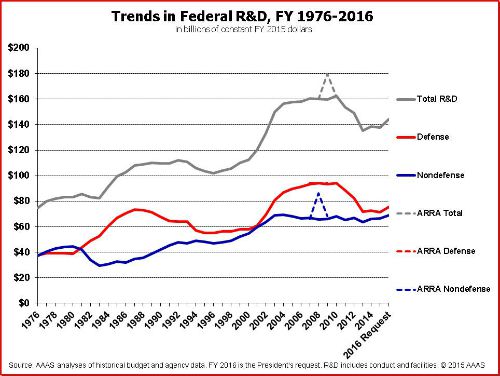Why it's OK to celebrate great leaders
No great technological (or scientific, or societal) leaps happen as solo acts; companies and research labs succeed through the efforts of teams, and often if not always, many organizations are scrambling at the same time to be the first to succeed in a new market.A friend sent me Amanda Schaffer's recent article in MIT Technology Review, Tech's Enduring Great-Man Mtyh, which claims (and I think rightly) that it's bogus to think that innovation is driven by "a few great men."Amanda's argument seems to go like this: the Technology industry puts leaders like Jobs and Musk on a pedestal, and credits them with the ability to single-handedly drive innovation forward. But if you dig under the hood, you find that Musk and Jobs are hardly lone geniuses; the innovations they claim credit for are made by people working for them, whom they abuse, and are funded not by their own companies but by decades of government research. If we idolize them and they become enthralled with their own success, they may become greedy:
If tech leaders are seen primarily as singular, lone achievers, it is easier for them to extract disproportionate wealth.
and drive away diverse talent:
If Silicon Valley, with its well-documented problems with diversity, is to attract a broader pool of talented people, encouraging more supportive managerial practices and telling more inclusive stories about who matters would surely help.
If we all fall into the misconception that innovation is driven by lone geniuses, we will lose interest in funding public research, and technological progress will slow or stop --
And finally, technology hero worship tends to distort our visions of the future. Why should governments do the hard work of fixing and expanding California’s mass transit system when Musk says we could zip people across the state at 760 miles per hour in a “hyperloop”?
Much of this is wrong. Some of this is right, but seems irrelevant to me.The cult of personality is actually quite a bit older than Steve Jobs or Elon Musk. Edison is credited as being the first "business celebrity," in the 1870s, beginning with the invention of the Phonograph. Like these modern day giants, Edison headed up a lab filled with brilliant researchers who likely contributed more, technically, than Edison himself to the inventions there produced.Despite the inventor's fame and inability to credit others, we somehow funded all of the research that Jobs and Musk and others have benefited from more recently. It's tempting to think that public research funds will dry up, but the data suggests otherwise. Total R&D spending by the U.S. Government has trended upward steadily since 1976: (click image to see data source at aaas.org)And besides, things like wars (cold or hot) and other political factors tend to have much greater impacts on spending that business celebrities.The Hyperloop is really infrastructure, not R&D though, and it's a well chosen example, as the congregational budget office report shows a flat or mildly negative trend in spending on infrastructure, though I think you'd be hard pressed to make the case that this decline has anything to do with the Hyperloop. The bottom line is that it's hard to find any evidence that celebrities of innovation have any notable negative effect on government investment in technological progress or infrastructure.Amanda also spends some time trying to convince us that Musk and Jobs (etc) are just lucky people in the right place and the right time. That They are, in fact, totally exchangeable for anyone else. This is both true and misleading:
(click image to see data source at aaas.org)And besides, things like wars (cold or hot) and other political factors tend to have much greater impacts on spending that business celebrities.The Hyperloop is really infrastructure, not R&D though, and it's a well chosen example, as the congregational budget office report shows a flat or mildly negative trend in spending on infrastructure, though I think you'd be hard pressed to make the case that this decline has anything to do with the Hyperloop. The bottom line is that it's hard to find any evidence that celebrities of innovation have any notable negative effect on government investment in technological progress or infrastructure.Amanda also spends some time trying to convince us that Musk and Jobs (etc) are just lucky people in the right place and the right time. That They are, in fact, totally exchangeable for anyone else. This is both true and misleading:
To put it another way, do we really think that if Jobs and Musk had never come along, there would have been no smartphone revolution, no surge of interest in electric vehicles?
The answer to that question is a resounding "no." Of course we would still have a smartphone revolution and a bigger market for electric vehicles, or at least something of similar significance. And we would be celebrating the leaders who would have succeeded in their stead.But this question disguises her real point, which is to say: there's nothing special here. It could have been anyone, so why celebrate them? I think there's a big difference between "could have" and "did do" -- anyone could have made Facebook, but Mark Zuckerberg did. Anyone could have made Theranos, but Elizabeth Holmes did.Assembling and leading a team of world-class talent is a difficult accomplishment in and of itself. To do so in an industry whose time is just right? To see, or at least guess, that the necessary technological components are just baked enough to bring something new and magical into existence? The ability to work people up over a new idea? To get headlines?To say it could be anyone is to implicitly shrug off the difficulty of all of these accomplishments, which is too bad, because that too is dangerous water: how many brilliant innovations have floundered in obscurity? You may not like the fact that we need to be sold on progress the same way we need to be sold on dish soap, but it is what it is. Accomplishing great things requires both talent and recognition.So while I agree that this kind of success is available to anyone, I disagree with the idea that it's nothing special.And I will add another, more subtle way in which celebrating the "greats" of innovation may actually be a good thing; it gives us as a society a hook on which to hang our debates. We are humans, and we like our stories personified. It's easier for us to digest changes in transportation by talking about Musk and Kalanick than by trying to debate the abstractions of traffic flow, growth, population trends, transport preferences, and so on.Without our little wizards, I think we'd be harder pressed to make policy and form our own relationship with the changes in technology that insert themselves into our lives every day.So do hero myths and business celebrities have their downsides? No doubt. But are they, on balance, a negative? I would guess not.
